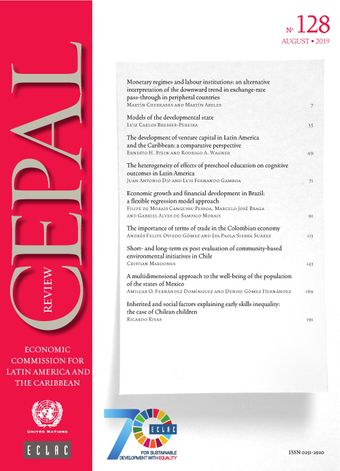-
Inherited and social factors explaining early skills inequality: The case of chilean children
- Source: CEPAL Review, Volume 2019, Issue 128, Aug 2019, p. 191 - 205
- Spanish
-
- 17 Apr 2020
- Previous Article
- Table of Contents
- Next Article
Abstract
This article sets out to analyse differences in cognitive and non-cognitive skills between Chilean children. It first examines factors explaining the level of these skills and then goes on to distinguish between children from poor and non-poor households. The data are taken from the first Early Childhood Longitudinal Survey, which was analysed using logistic binary regression. This study finds that variables associated with the mother's intelligence level and other socialization-related variables are statistically significant. However, separate statistical analysis for poor and non-poor households yields different effects of socialization. The main conclusion is that the mother's skills are a relevant explanatory factor in both poor and non-poor children's households. Nonetheless, unequal development of skills in early childhood is not due to inherited traits alone. Stimulation matters in poor households, while the mother's education matters in non-poor households.



